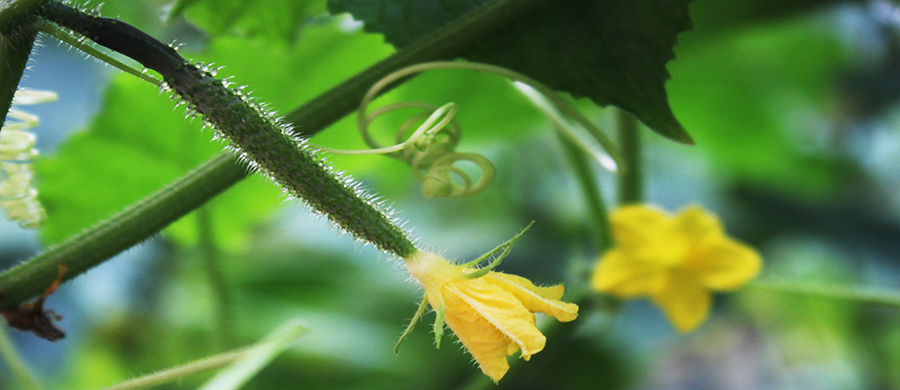LIU Tingting, WEI Xuyang, ZHAI Xijiao, CAO Shiyu, ZHENG Shaowen
To explore the effects of different exogenous melatonin concentrations on the growth of cucumber seedlings in a saline environment, in the experiment, cucumber Xintai Mici was used as the test material, and the method of foliar spraying was used to study the effect of different exogenous melatonin concentrations (0, 50, 100, 150, 200 μmol/L) in a moderately saline environment on cucumber seedling growth indicators, osmotic adjustment substances, antioxidant enzyme activity, photosynthetic pigment content, leaf enzyme activity and relative conductivity. The results showed that the treatment with an exogenous melatonin concentration of 100 μmol/L could significantly improve the resistance of cucumber seedlings to stress in a saline environment, and the plant height, stem thickness, leaf length and leaf width of the seedlings was better than the treatments with the melatonin concentrations of 150, 200 μmol/L, and increased by 21.0%, 6.0%, 5.8% and 6.0%, respectively, compared with the control, which promoted plant growth. The SOD, POD and root activity of cucumber seedlings increased by 95.8%, 3.6% and 39.2%, compared with the control, the MDA content and the relative conductivity of the leaves reduced by 23.7% and 8 percentage point, respectively, compared with the control, indicating that the melatonin treatment improved the ability to remove active oxygen and reduced the damage of membrane lipid peroxidation to cucumber seedling cells. Its chlorophyll a content increased by 37%, compared with the control. After 15 d of treatment, the initial fluorescence value (Fo) and maximum fluorescence value (Fm) of M2 seedlings were significantly higher than those of the control. There was no difference between the value of light energy conversion rate (Fv/Fm) and the control. The contents of osmotic regulator soluble protein, proline and soluble sugar significantly increased by 13.8%, 37.5% and 3.6%, respectively, compared with the control. Therefore, when cucumber seedlings are treated with exogenous melatonin at a concentration of 100 μmol/L, it not only promotes the growth of cucumber seedlings, but also improves the stress resistance of cucumber seedlings in a saline environment.
